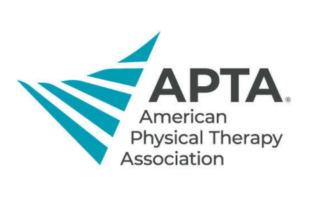The Alliance for Connected Care aims to:
Demonstrate the importance of Connected Care as a tool for improved quality and efficiency.
Build significant and high-level support for Connected Care among leaders in Congress and the Administration.
Enable more telehealth to support new models of care.
Lift geographic and site restrictions for telehealth in Medicare.
Establish a consensus-based, standardized definition of Connected Care to advance with policymakers.
Alliance News
Over 380 Clinicians Send Letter to DEA
Over 380 clinicians and practitioners signed a letter, requesting the DEA to issue a revised proposed rule to regulate the prescribing of controlled substances through telehealth as soon as possible to ensure adequate time for patients to continue existing care. To read a full copy of the stakeholder letter, please click here.
Data & Society: Therapeutic Labor, Teletherapy, and the Platformization of Mental Health Care
Data & Society: Therapeutic Labor, Teletherapy, and the Platformization of Mental Health Care More people than ever are accessing psychotherapy and counseling remotely in the United States, especially since the COVID-19 pandemic. Teletherapy has allowed clients and therapists to connect across physical distance, often to the benefit of those seeking mental health support. This report examines the changing realities for mental health professionals in the US as therapeutic labor is restructured by teletherapy services and digital platforms. Focusing on providers who practice teletherapy and work for digital platforms, the report examines the fundamental tensions that emerge when a profession [...]
Letter on House W&M Temporary Two-Year Extension
On behalf of the Alliance for Connected Care and the many patients and clinicians we represent, I am writing to share our appreciation for your leadership in advancing important telehealth access – building on the dynamic hearing this spring on care in the home. Most notably, we have supported the Committee’s actions to avert the coming telehealth cliff on December 31, 2024 – both through the advancement of commercial market telehealth last year and now with a two-year extension of Medicare telehealth access.
Foley & Lardner LLP: 2024 50-State Telehealth Survey
Foley & Lardner LLP: 2024 50-State Telehealth Survey Foley & Lardner LLP released the third edition of its 50-State Survey of Telehealth Insurance Laws, which provides a detailed report on each state’s telehealth commercial insurance coverage and payment/reimbursement laws and compares these laws before and after the Public Health Emergency (PHE). Notable changes from pre-PHE to post-PHE include: Additional restrictions on exclusive telehealth platform arrangements allow clinics and hospitals to make individual decisions that best suit their patients; Audio-only, or phone call, coverage becomes a permanent fixture, helping people in rural areas to receive care; Payment parity (reimbursing at [...]
HealthAffairs: Remote Physiologic Monitoring Use Among Medicaid Population Increased, 2019–21
HealthAffairs: Remote Physiologic Monitoring Use Among Medicaid Population Increased, 2019–21 Remote physiologic monitoring use increased more than 1,300 percent from 2019 to 2021, and use varied by state. Remote physiologic monitoring facilitates the use of technologies, including wearable devices and mobile applications, to transmit health data such as heart rate, blood pressure, and blood oxygen levels directly to providers. Asynchronous remote monitoring may be particularly beneficial to patients who are at high risk for complex medical problems, who have significant barriers to accessing in-person care, or who have greater disease burden. The findings suggest that states with documented remote physiologic monitoring [...]




















